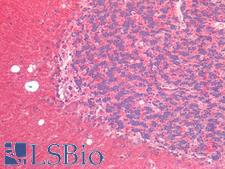Login
Registration enables users to use special features of this website, such as past
order histories, retained contact details for faster checkout, review submissions, and special promotions.
order histories, retained contact details for faster checkout, review submissions, and special promotions.
Forgot password?
Registration enables users to use special features of this website, such as past
order histories, retained contact details for faster checkout, review submissions, and special promotions.
order histories, retained contact details for faster checkout, review submissions, and special promotions.
Quick Order
Products
Antibodies
ELISA and Assay Kits
Research Areas
Infectious Disease
Resources
Purchasing
Reference Material
Contact Us
Location
Corporate Headquarters
Vector Laboratories, Inc.
6737 Mowry Ave
Newark, CA 94560
United States
Telephone Numbers
Customer Service: (800) 227-6666 / (650) 697-3600
Contact Us
Additional Contact Details
Login
Registration enables users to use special features of this website, such as past
order histories, retained contact details for faster checkout, review submissions, and special promotions.
order histories, retained contact details for faster checkout, review submissions, and special promotions.
Forgot password?
Registration enables users to use special features of this website, such as past
order histories, retained contact details for faster checkout, review submissions, and special promotions.
order histories, retained contact details for faster checkout, review submissions, and special promotions.
Quick Order
PathPlusTM HTT / Huntingtin Antibodies
HTT (Huntingtin) is a disease gene linked to Huntington's disease, a neurodegenerative disorder characterized by loss of striatal neurons. This is thought to be caused by an expanded, unstable trinucleotide repeat in the HTT gene, which translates as a polyglutamine repeat in the protein product. A fairly broad range in the number of trinucleotide repeats has been identified in normal controls, and repeat numbers in excess of 40 have been described as pathological. The huntingtin gene is widely expressed and is required for normal development. In adults, it functions in vesicle trafficking, and is thought to participate in cytoskeletal anchoring and mitochondrial transport. In normal tissue, HTT has highest cytoplasmic and nuclear positivity in the brain, and is also found in most other tissues throughout the body.
References: The UniProt Consortium. Nucleic Acids Res. 47: D506-515 (2019); Nucleic Acids Res. 2016 Jan 4;44(D1):D733-45, PMID:26553804; Journal of Cell Science. 115 (Pt 5): 941–8, PMID: 11870213;
1 PathPlusTM Antibody

☰ Filters
Products
Antibodies
(1)
Type
Primary
(1)
Target
HTT / Huntingtin
(1)
Reactivity
Human
(1)
Mouse
(1)
Rabbit
(1)
Application
IHC-P
(1)
WB
(1)
IP
(1)
Host
mouse
(1)
Product Group
PathPlus Neuro
(1)
Isotype
IgG1
(1)
Clonality
monoclonal mc
(1)
Clone
HDC8A4
(1)
Format
Unconjugated
(1)
Epitope
aa2703-2911
(1)
Publications
No
(1)

Neuroscience
HTT / Huntingtin Mouse Monoclonal (aa2703-2911) (HDC8A4) Antibody
Rabbit, Mouse, Human
IHC-P, IP, WB
Unconjugated
0.1 mg/$505
Viewing 1-1
of 1
product results










